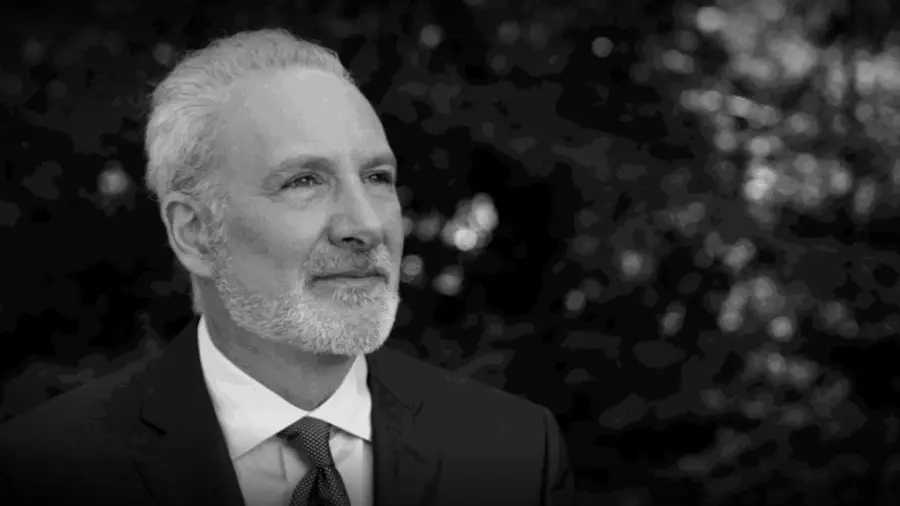At 99 years old, Jack Foy is considered the youngest of the group of friends who fought in World War II. Old age will not stop them from making the transatlantic journey to honor their fallen comrades on the 80th anniversary of D-Day.
On June 6, Foy – a survivor of the Battle of the Bulge – and his fellow American veterans will join dignitaries and heads of state from around the world to honor the nearly 160,000 Allied soldiers who, eight decades ago, accomplished the largest maritime invasion in history.
Foy told CNN who has been to several memorials in France since 2014. The emotion of each trip grows stronger year after year, he said, because these veterans know the trip could be their last. “We realize we are coming to the end of our time,” Foy said.
They are not alone. With major commemorations only held every five years, organizers and government officials admit that this year's event could be the last to involve living veterans, whose stories of the horrors of war have become particularly poignant given Russia's invasion of Ukraine. brought a scene of war back to Europe for the first time since 1945.
“We are fully aware that for these centenarians this is perhaps the last opportunity to return to the beaches where they landed, where they fought and where their brothers in arms fell,” said General Michel Delion, CEO of the French government agency responsible for commemoration efforts. French, Mission Liberation.
The various countries organizing the event are now planning what is expected to be the most extensive D-Day commemoration in history – both in terms of size and, crucially for elderly veterans, logistics.
Approximately 150 American veterans are expected to travel to Normandy — about two dozen of whom actually fought on D-Day — said Charles Djou, secretary of the American Battle Monuments Commission, the independent agency responsible for managing U.S. military cemeteries and monuments. USA. The youngest is 96 years old.
Fifteen Canadian veterans, including three or four who fought on D-Day, are traveling with the Canadian delegation, according to John Desrosiers, director of international operations at Veterans Affairs Canada. Desrosiers said the youngest traveling with the group is 98 and the oldest is 104.
The British Ministry of Defense said it expects more than 40 Second World War veterans to attend the various events in Normandy.
Presence of heads of state
These veterans will be joined by around 25 heads of state and government, including US President Joe Biden, British Prime Minister Rishi Sunak and Canadian Prime Minister Justin Trudeau.
Russian President Vladimir Putin did not receive an invitation due to the war in Ukraine, while Ukrainian President Volodymyr Zelensky plans to attend, according to a French presidential source.
With so many heads of state in the city, the security measures in place are intense. A huge contingent of 12,000 security officers will be deployed on June 6, the French Interior Ministry said.
The tight travel restrictions imposed by French authorities will also effectively isolate the Norman coast and the normally sleepy towns that surround it from the rest of the country.
Authorities say they are doing everything they can to treat veterans like royalty – as they are feted by royal royalty. King Charles III will be there on June 6 – his first trip abroad since being diagnosed with cancer – alongside Queen Camilla and Prince William, Buckingham Palace said. Representatives of the royal families of Belgium, Monaco, the Netherlands and Norway are also expected to attend.
The veterans' agenda
However, on June 6th, these elderly men cross the region to complete the day-long itinerary, including national ceremonies held in American, British and Canadian cemeteries; the great international celebration promoted by France; and then, if they have the energy, more local events.
Most veterans also travel with a medical team. The charity that organized Foy's trip, the US-based Best Defense Foundation, is bringing three doctors and 10 nurses to accompany the 50 veterans who are coming from the United States. Each veteran will travel with a personal caregiver – typically a family member or friend.
Delion's team has been conducting rehearsals and timing wheelchair races for the French-led international ceremony. They are also considering allowing veterans in at the same time as heads of state and other dignitaries to reduce wait times.
American and Canadian organizers told CNN who will place veterans last in their respective national ceremonies to keep them comfortable. The general public at the American event, for example, may need to be seated about an hour in advance due to safety precautions.
“We care for the veterans who served and made the enormous sacrifices they made in World War II,” Djou said.
Day D
After being delayed 24 hours due to bad weather, D-Day began shortly after midnight on June 6, 1944, when paratroopers dropped into German-occupied France to lay the groundwork for the coming invasion.
Allied planes and warships began bombing at around 6:30 am, with troops arriving on the beaches soon after. They landed on a 50-mile-long stretch of coast organized into five beaches codenamed Gold, Juno, Omaha, Sword and Utah.
The Americans were responsible for Omaha and Utah. The British led the attack on Gold and Sword, while the Canadians dealt with Juno.
Although 4,414 Allied soldiers died that day and it took more than a month to achieve one of the main objectives of D-Day – liberating the strategically important city – the landings were considered a success. Allied troops managed to reach the coast of France; It was the beginning of the end for Hitler and Nazi Germany.
Source: CNN Brasil
Bruce Belcher is a seasoned author with over 5 years of experience in world news. He writes for online news websites and provides in-depth analysis on the world stock market. Bruce is known for his insightful perspectives and commitment to keeping the public informed.







